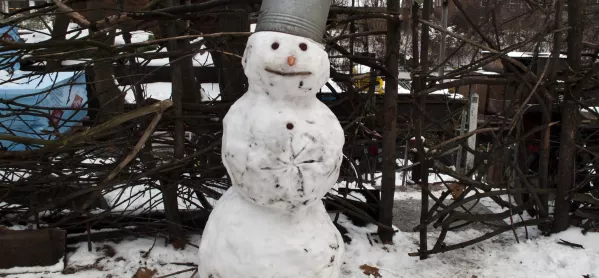It’s that time of year again.
Glittery paraphernalia fills the shops, tinny hits are piped through the sound systems seemingly everywhere and adverts for the latest must- have items are all around.
Don’t get me wrong, I love Christmas.
Quick read: Children facing ‘Dickensian levels of poverty’
Quick listen: Why we need more support for mental health in primary
Want to know more? Motivational interviewing: bringing empathy to school
But I know that’s not the case for some of my students.
Working with young people who typically experience a high number of ACEs (adverse childhood experiences) and come from households with substance and alcohol misuse, child protection issues, domestic violence and mental health difficulties means sensitivity is needed.
Adverse childhood experiences
Over the 10 years I have worked for Inclusion Hampshire, a specialist education provision, I’ve often seen a decline in positive behaviour and engagement and a higher number of incidences of emotional dysregulation and negative behaviour around this time of year.
Research from mental health charity Mind found that more than a third (36 per cent) of people with mental health problems have self-harmed to cope with the pressure of Christmas, more than half (52 per cent) have considered harming themselves at Christmas, while nearly half (45 per cent) have considered taking their own life.
Suicide helpline charity Samaritans has urged people to stop striving for a perfect Christmas, after a survey found that half of people hide their feelings at Christmas to keep others happy.
Mind’s poll also revealed that 76 per cent of people have had problems sleeping at Christmas and nearly 60 per cent have had experienced panic attacks over the festive period.
According to government figures from 2012, assault and domestic murders increase 25 per cent during the festive period and incidents go up by a third on Christmas Day.
It is also important to remember that people can feel isolated over the Christmas period, and disrupted from their usual routines, with a reduction in support services.
So what can we do to help?
Be mindful in the run-up to Christmas
A good starting point is to be mindful of difficulties in the lead up to Christmas and consider how they could be affecting students.
If behaviour becomes negative or engagement reduces, it is important to have this in the forefront of your mind and not to personalise it.
Positive mentoring relationships
Maintain positive, mentoring relationships and allow plenty of time for talking and support. It may be that you need to adjust your expectations for time in lessons.
De-escalation and positive behaviour management is key; it could be going for a walk, time out in a quiet room, doing some art or music as an outlet.
Tailor content
We focus our life and living skills education on relevant topics such as managing stress and anxiety over Christmas, and offer strategies to cope with social situations.
We also teach pupils about keeping safe as there is an increased likelihood of alcohol or drug misuse and risk-taking.
Prioritise support
We offer additional listening sessions with our team of counsellors and ensure parents have support from our pastoral manager.
If possible, we work with parents and other professionals to coordinate further support for the whole family.
We also make sure that all students are provided with information on support for when we are not there over Christmas, such as Childline and Shout.
Mind your language
Avoid asking questions such as “What do you want for Christmas?” - be aware that money may be tight.
Avoid talking about your own Christmas plans in front of students. If asked, I would keep your responses vague.
And when your students return from the Christmas break, maybe the first thing you say shouldn’t be “How was your Christmas?” but “It’s lovely to see you, welcome back.”
Marie Greenhalgh is head of post-16 for Inclusion Hampshire
